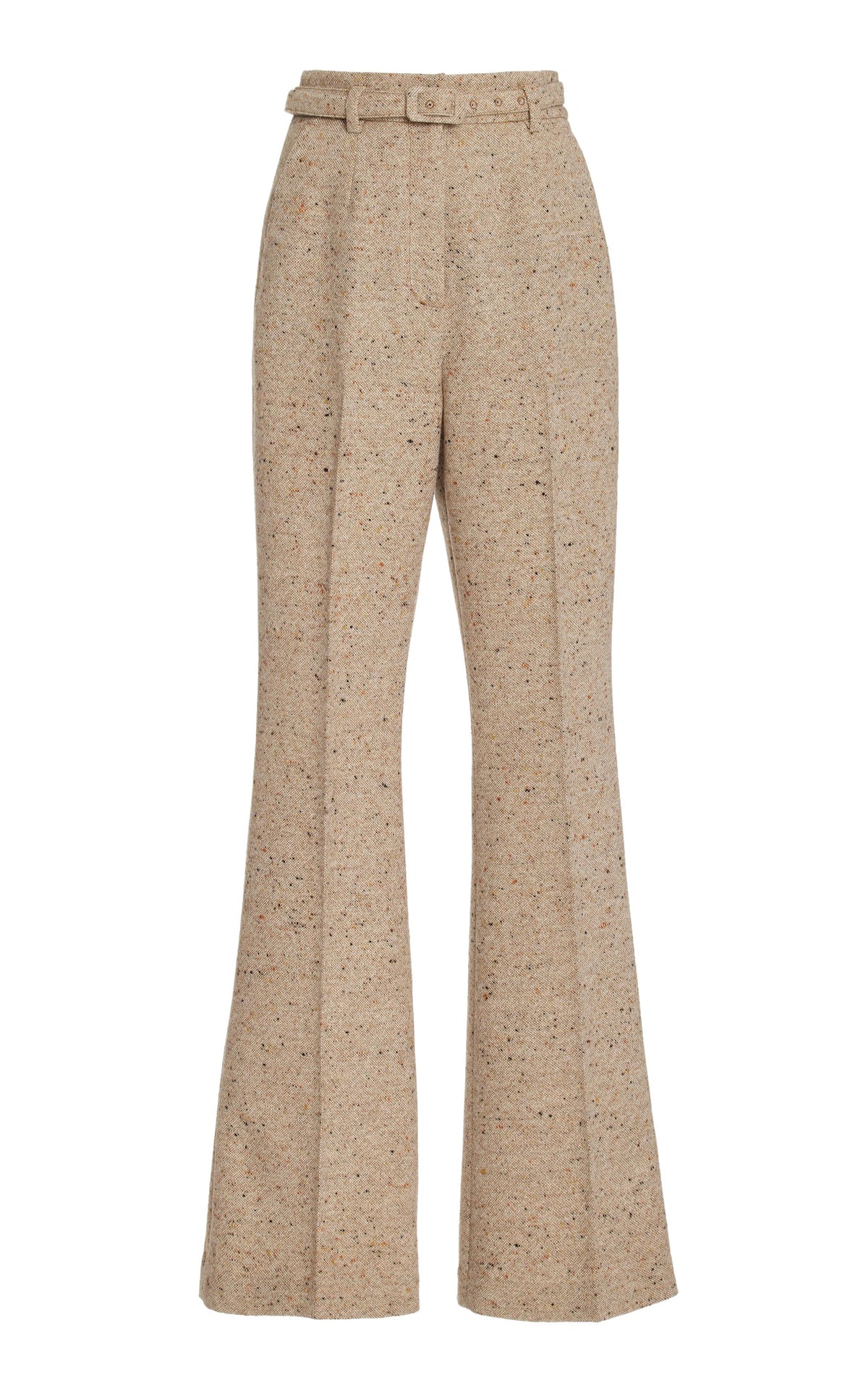
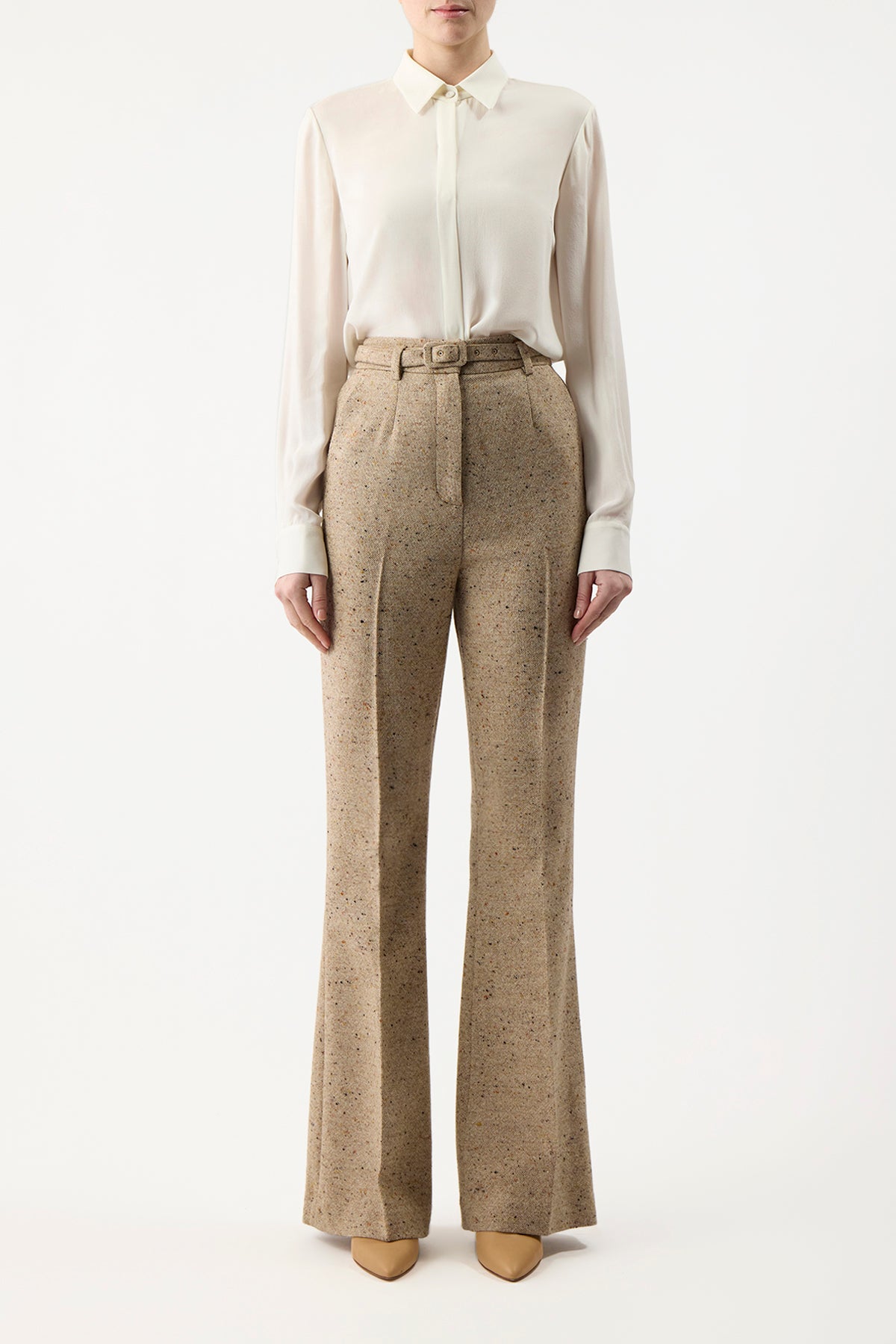
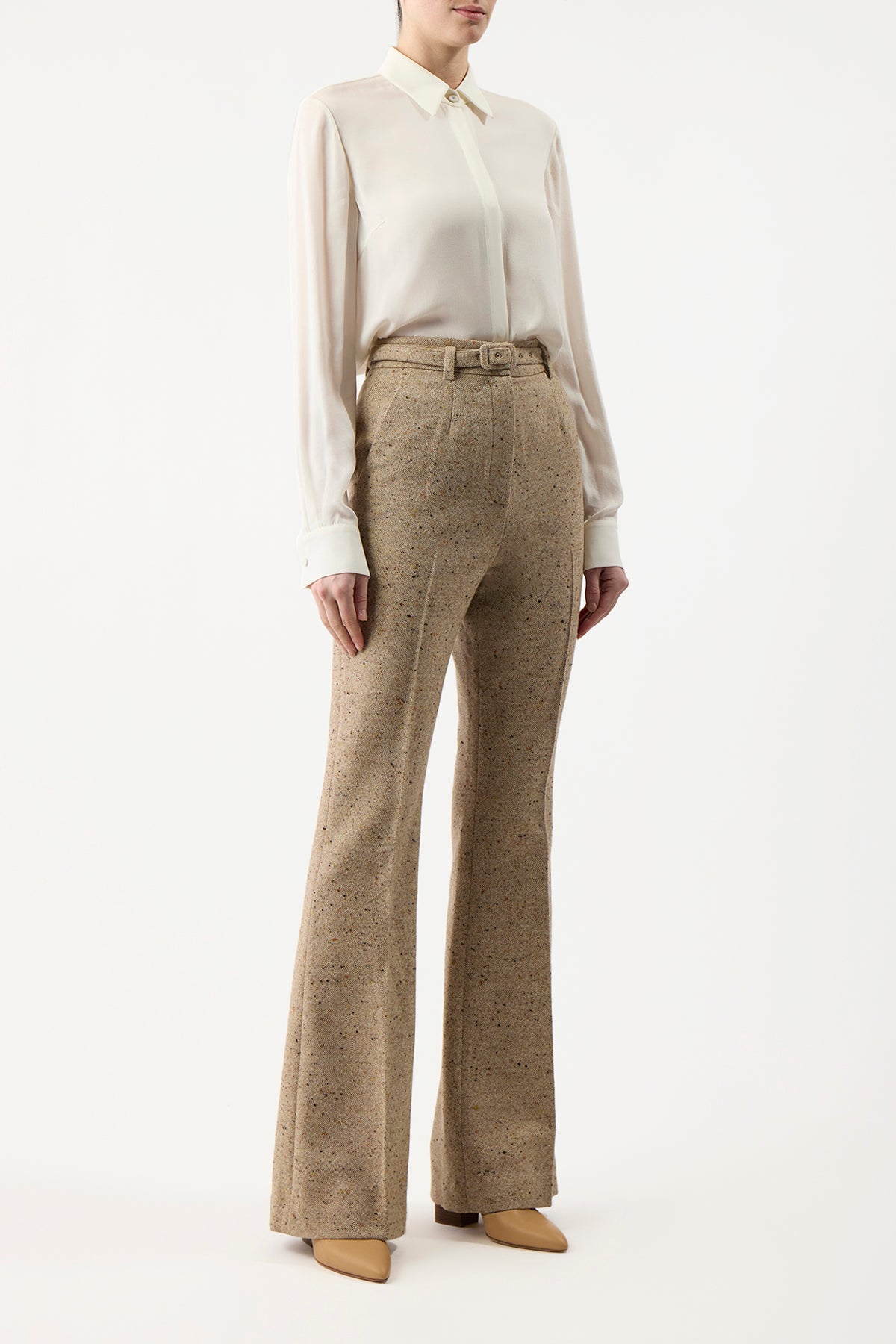
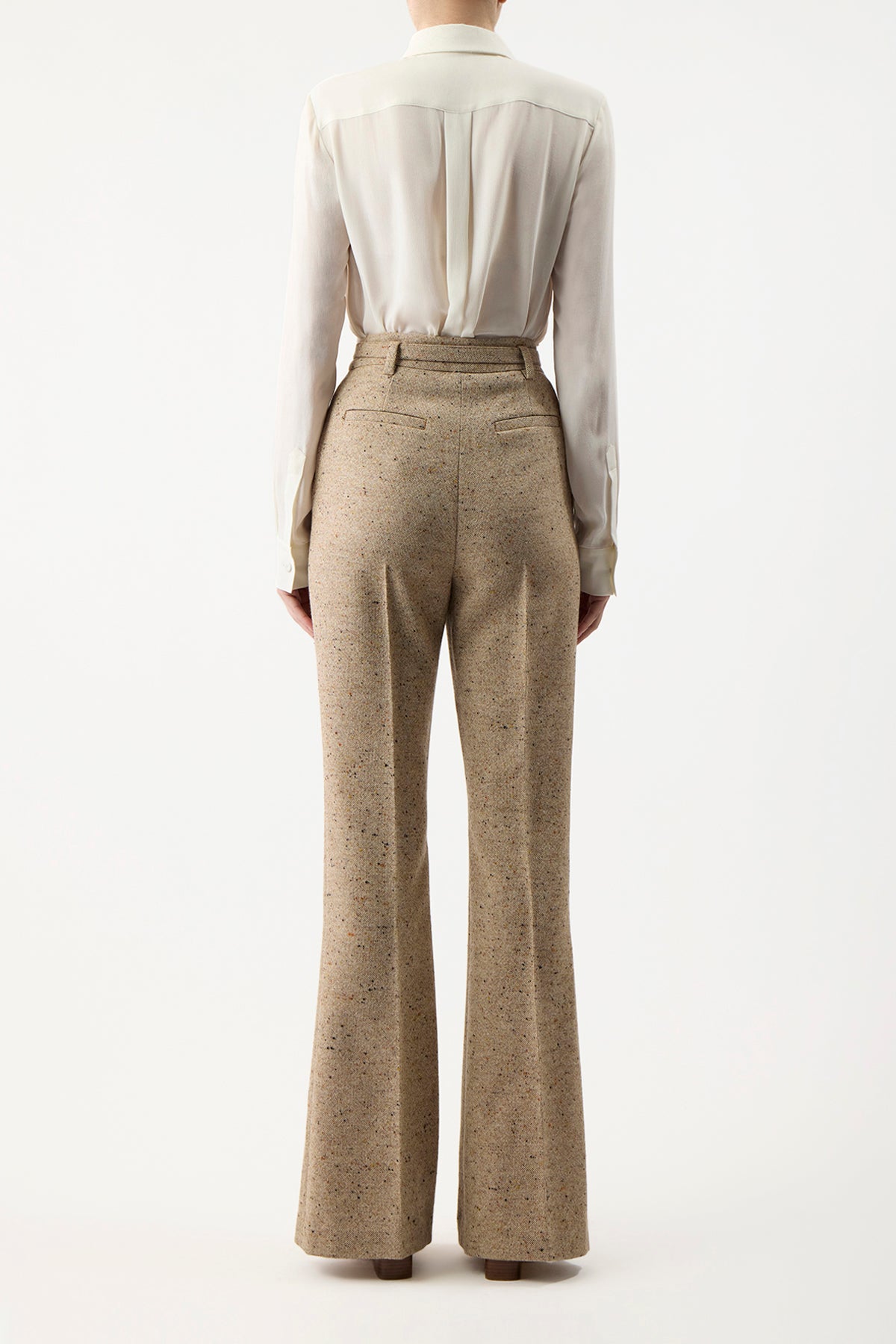
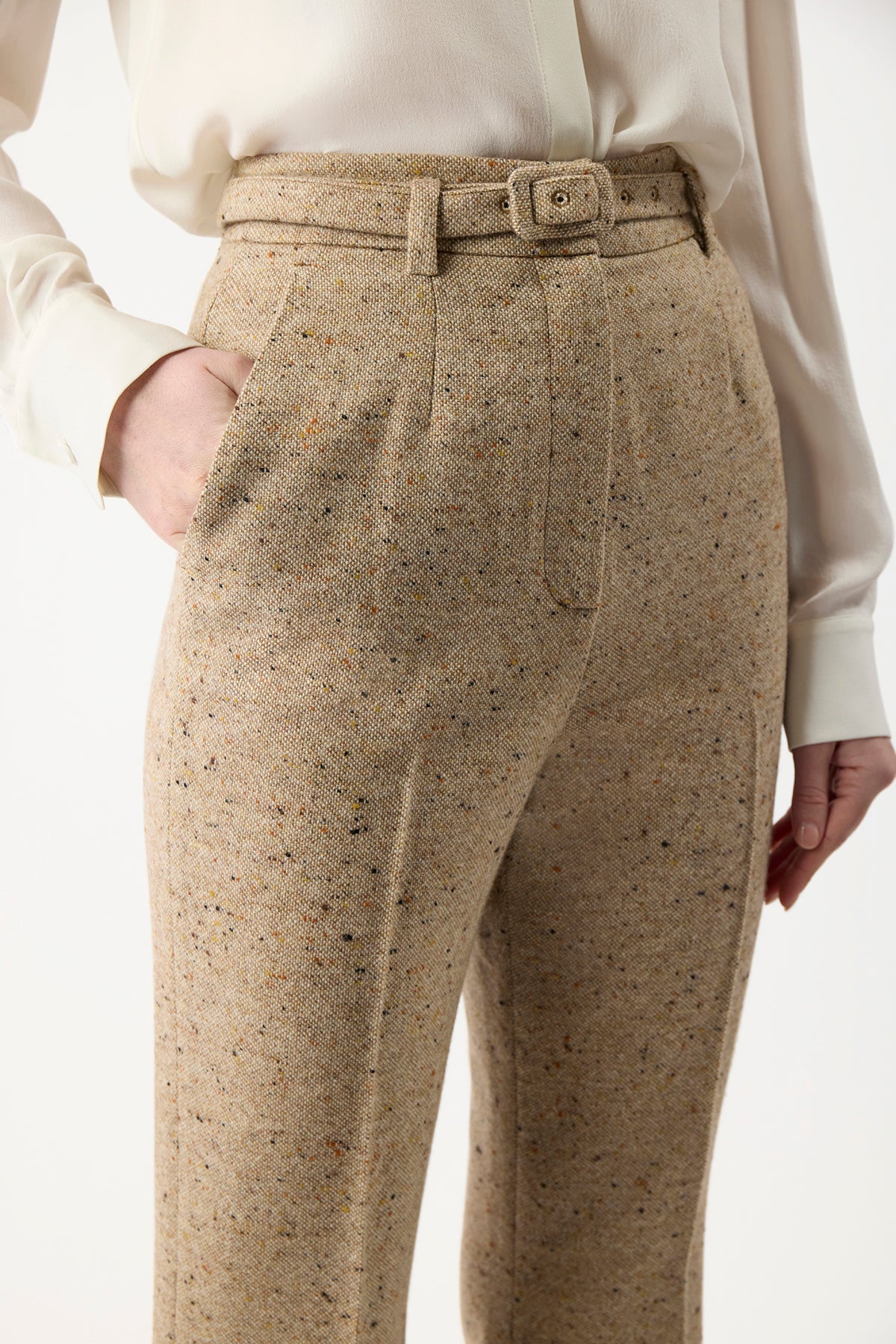
Material Supplier Transparency:
喬什·潘特
The Josh pant is styled with a self-belt and covered buckle. Slim through the hips, and upper leg it flares out subtly towards the hem, bringing an ease to this flattering piece.
Details:
- 50% Virgin Wool (Australia), 50% Cashmere (China). Dying/Weaving/Finishing Italy.
This family-owned mill installed solar panels in 2011, in effort to power its electricity needs. Additionally, they treats wastewater internally before recycling. They recently obtained certification by the Global Organic Textile Standard (GOTS), are working toward the Better Cotton Initiative (BCI), and are shifting to organic linen and hemp. They abide by the following compliances: Global Recycled Standard (GRS) Responsible Wool Standard (RWS) Zero Discharge of Hazardous Chemicals Manufactured Restricted Substances List (ZDHC MRSL) Global Organic Textile Standard (GOTS).
This garment was produced at an Italian factory that values high-quality product and sustainability. They are fully powered by solar energy. They recycle all applicable materials, including fabric waste.
Blended fibers take on properties of the joining counterparts to achieve uniquely desirable characteristics.
Cashmere is one of the most luxurious wools, with desirable drape, softness and wrinkle resistance. It is up to three times more insulating than regular wool, with lofty fibers that can be tightly knit into warm and lightweight fabric. Like all wool, it wicks moisture and allows skin to breathe. Cashmere is considered hypoallergenic, since it doesn’t have lanolin. While more delicate than other wool, cashmere garments will not lose their shape if properly cared for. This is due to the fiber’s natural stretch that allows garment to move with you and recover.
Wool is a renewable fiber; one sheep can produce 4-5 pounds of wool per year. Wool provides warmth by trapping heat, while simultaneously transporting moisture away from the body so skin stays dry and comfortable. It is naturally antimicrobial, so it resists odors and rarely needs washing. Its exceptional durability allows for long garment lifespan, and it can biodegrade when disposed into right soil conditions.
